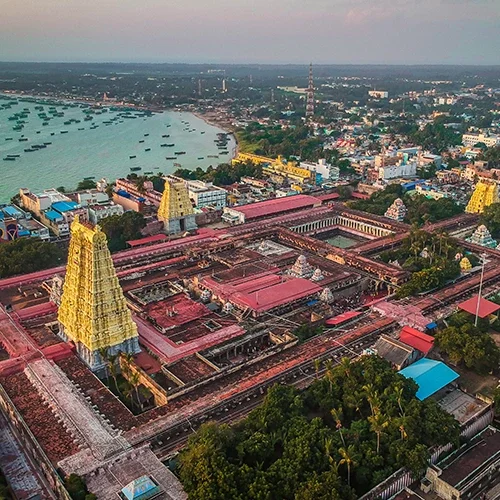
In the early 15th century, the present territories of Ramanathapuram district, which consisted of taluks of Tiruvadanai, RajaSingaMangalam, Paramakudi, Ramanathapuram and Rameswaram, Kamuthi, Mudukulathur, existed in the Pandyan dynasty. This area was under the control of the kings for a brief period when Rajendra Chola I brought it under his territory in 1063 CE. In 1520, the Nayaks of Vijayangar took over the area under their control from the Pandiyan dynasty for about two centuries, the Maravar chiefs Sethupathis who were lords under the Pandiyan kings and ruled this part (17th century). In the early 18th century, family disputes over succession resulted in the bifurcation of Ramanathapuram. With the help of the king of Thanjavur in 1730, one of the chiefs deposed Sethupathy and became Raja of Sivaganga. Acting on the weakness of the Nayak rules, the local chiefs (Palayakatars) became independent. Prominent among them were Raja of Sivagangai and Sethupathy of Ramanathapuram. In 1730, Chanda Sahib of Carnatic conquered Ramanathapuram. In 1741, the area came under the control of the Marattas and then under the Nizam in 1744, the Nawab's rule created discontent in the minds of those chiefs. That made them declare the last Nayak as ruler of Pandiya Mandalam against the Nawab in 1752. At that time, the Carnatic throne had two rivals, Chanda Sahib and Mohamed Ali, and this district was part of Carnatic. The British and the French supported Chanda Sahib and Mohamed Ali respectively. It paved the way for a series of conflicts in the southern part of the continent.
In 1795, the British deposed Muthuramalinga Sethupathy and took control of the Ramanathapuram administration. In 1801, Mangaleswari Nachiyar was appointed Zamindar of Sivagangai. After Queen's death, the Marudhu brothers took over, paying regular revenue to the East India Company. In 1803, the Marudhu brothers of Sivaganga, in alliance with Kattabomman of Panchalamkurichi, rebelled against the British. Colonel Agnew captured and hanged the Marudhu brothers and converted Gowri Vallbah Periya Udaya Thevar Zamindar of Sivaganga. After the fall of Tippu Sultan, the British took power and imprisoned the Nawab. In 1892 the Zamindari system was abolished and a British collector was appointed to the administration.

